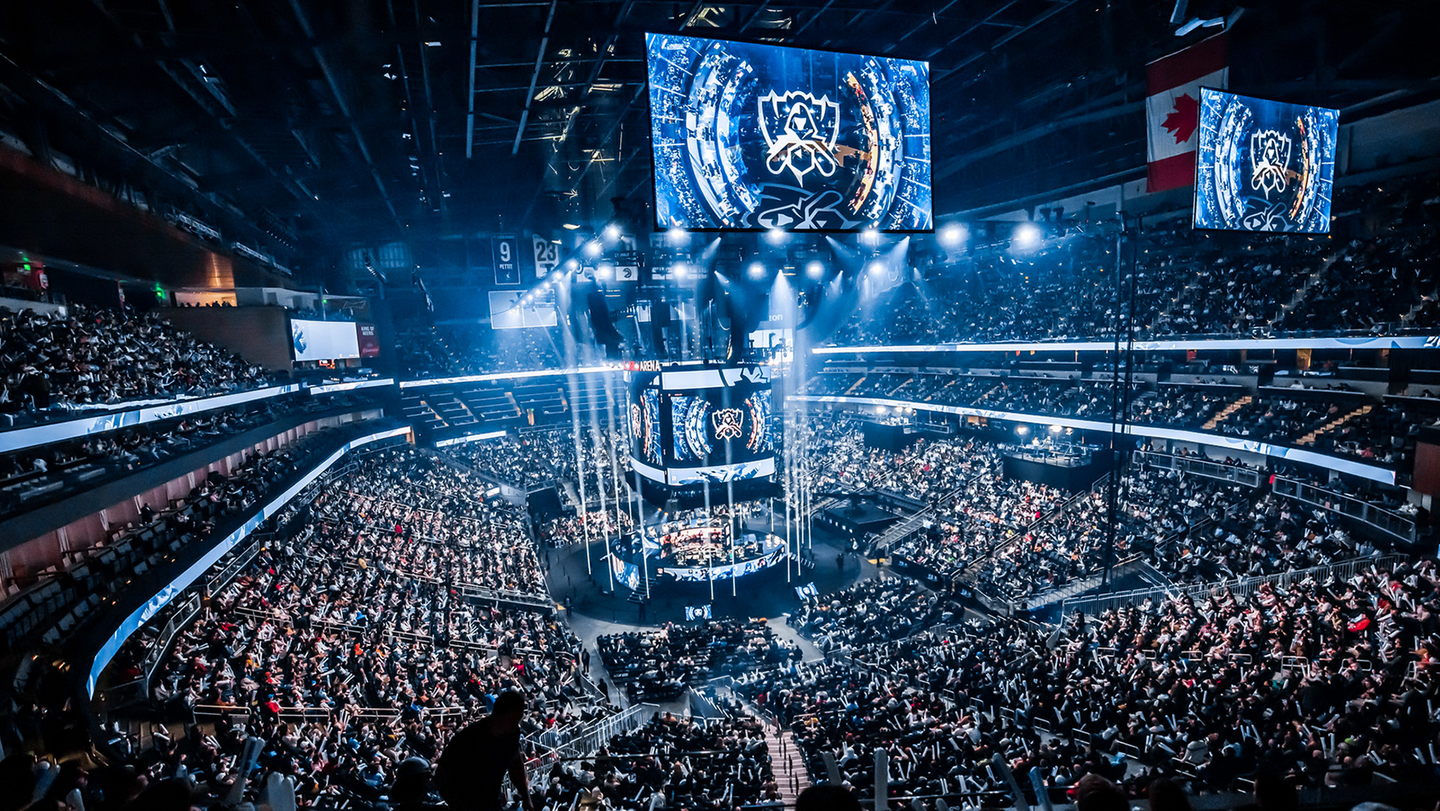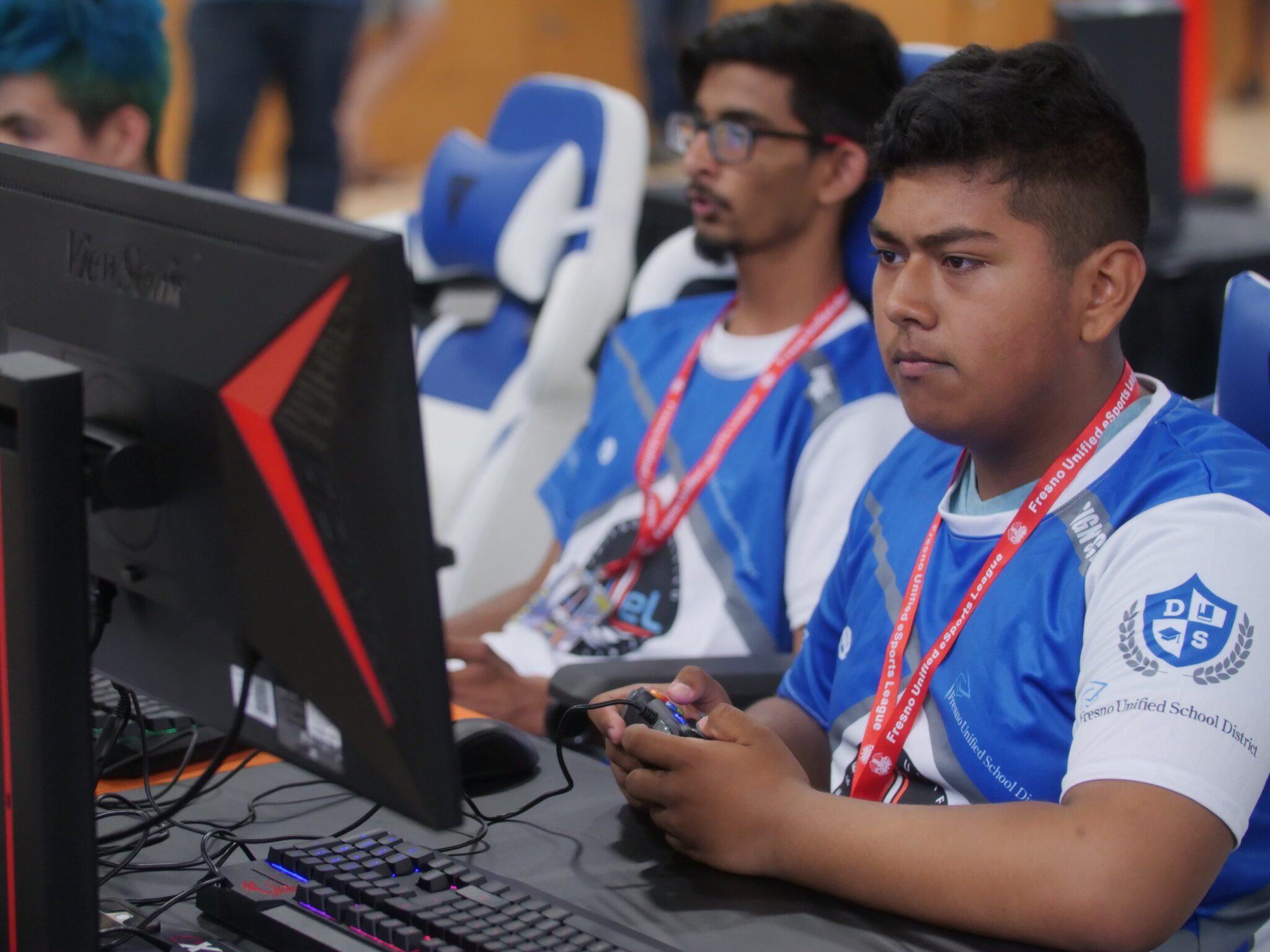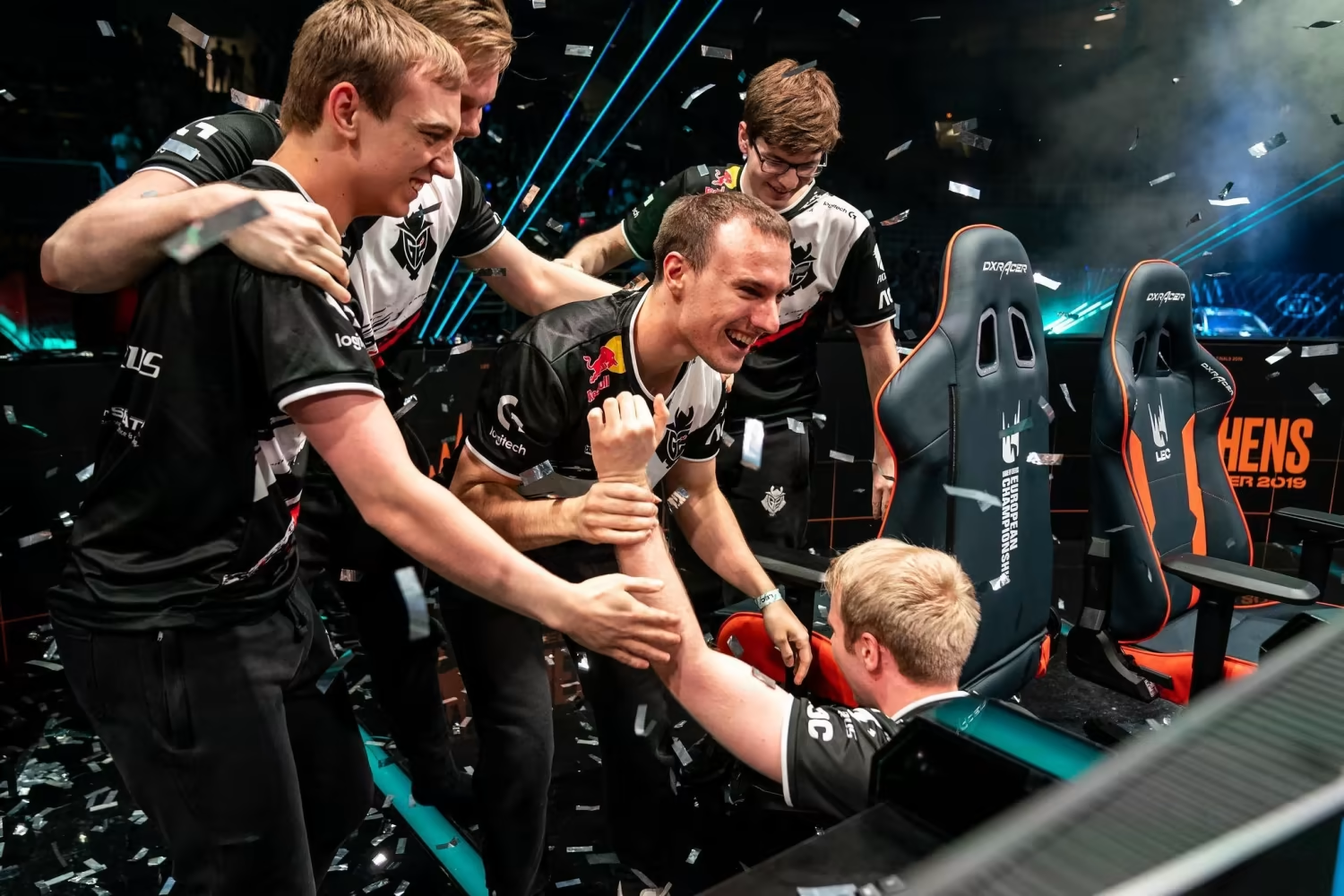What is an Esports league?
Jump to a different section here!
An esports league is an organized and structured competition involving professional esports teams or players who compete against each other in specific video games.
These leagues are similar in many ways to traditional sports leagues, such as the NFL or NBA, but they revolve around video games and digital competition.
Here are some key aspects of esports leagues:
- Professional Competitions: Esports leagues consist of professional players and teams who compete at a high level of skill. These players often make a living
through salaries, sponsorships, and tournament winnings.
- Multiple Titles: Esports leagues can cover a variety of video game titles, each with its own league or division. For example, there may be
a League of Legends league, a Counter-Strike: Global Offensive league, and a Fortnite league, among others.
- Regular Seasons: Like traditional sports, esports leagues typically have regular seasons during which teams compete against each other.
These seasons consist of a series of matches or games, and teams earn points or rankings based on their performance.
- Playoffs and Championships: At the end of the regular season, the top-performing teams often advance to playoffs or championships.
These events determine the ultimate winner of the league for that season.
- Broadcasts and Streaming: Esports leagues are often broadcasted or live-streamed on platforms like Twitch, YouTube, or dedicated esports
streaming services. These broadcasts can include commentary, analysis, and interviews.
- Fan Engagement: Esports leagues prioritize fan engagement through various means, including fan clubs, merchandise, and online interactions.
Fans can also attend live events to support their favorite teams and players.
- Sponsorships and Advertising: Esports leagues attract sponsors and advertisers who promote their products or services during broadcasts or
at live events. These partnerships provide financial support to the league and its teams.
- International and Regional Leagues: Esports leagues can be organized on an international or regional basis. Some leagues feature teams from
around the world, while others are limited to specific regions.
- Game Updates and Meta Changes: Esports leagues often adapt to changes in the video games they feature. Updates, patches, and changes in
gameplay mechanics can have a significant impact on the competitive scene.
- Franchising: In some cases, esports leagues adopt a franchising model, where teams purchase franchise slots in the league. This
model provides stability and revenue-sharing opportunities for teams.
- Revenue Sharing: Esports leagues may distribute a portion of their revenue to teams and players, similar to revenue-sharing models in traditional sports leagues.
Notable examples of esports leagues include the League of Legends Championship Series (LCS), Overwatch League (OWL), and the Counter-Strike: Global Offensive Major Championships
(Majors). These leagues have become highly competitive and attract large audiences of fans and viewers, contributing to the growth and popularity of esports as a global industry.
Popular Esports Game Leagues
Jump to a different section here!
Esports has a wide variety of popular game leagues, each centered around a specific video game title. These leagues showcase some of the most competitive and skilled players
and teams in the world. As of my last knowledge update in September 2021, here are some of the most popular esports game leagues:
- League of Legends Championship Series (LCS): LCS is the North American league for the popular MOBA game, League of Legends. It features top teams competing in a regular
season and playoffs.
- League of Legends European Championship (LEC): LEC is the European counterpart to the LCS, focusing on League of Legends competition in Europe.
- Overwatch League (OWL): OWL is the premier league for Blizzard Entertainment's team-based shooter, Overwatch. It has teams based in cities around the world and features
a regular season, playoffs, and a championship.
- Counter-Strike: Global Offensive Major Championships (Majors): CS:GO Majors are some of the most prestigious tournaments in the first-person shooter game Counter-Strike:
Global Offensive. They are organized by Valve and feature top teams from around the world.
- Dota 2 Pro Circuit (DPC): Dota 2's competitive scene is organized around the DPC, which includes a series of tournaments leading up to The International,
one of the biggest esports events globally.
- Call of Duty League (CDL): CDL features professional competition in the Call of Duty franchise, with multiple events and a championship.
- Rocket League Championship Series (RLCS): RLCS focuses on Psyonix's rocket-powered car soccer game, Rocket League. It includes both North American and European divisions.
- Rainbow Six Siege Pro League (R6 Pro League): R6 Pro League showcases competitive Rainbow Six Siege play, featuring teams from around the world.
- Fortnite Champion Series (FNCS): FNCS is the competitive series for the battle royale game Fortnite. It includes regional competitions leading to the Fortnite World Cup.
- Valorant Champions Tour (VCT): VCT is Riot Games' esports circuit for their tactical first-person shooter, Valorant. It includes various regional tournaments and a global championship.
- StarCraft II World Championship Series (WCS): WCS features professional StarCraft II competitions, including regional events and a global championship.
- Hearthstone Masters Tour: Hearthstone's competitive scene is organized through the Masters Tour, which features top players from around the world competing in the digital card game.
Please note that the popularity of esports leagues and the games they represent can change over time. New games and leagues may have emerged since my last update in September 2021,
and the popularity of existing ones may have shifted. To stay current, I recommend checking esports news sources and official league websites for the latest information on
popular esports game leagues.
What Esports League should you support?
Jump to a different section here!
Choosing which game league to support in esports depends largely on your personal preferences, interests, and the games you enjoy watching or playing the most.
Here are some factors to consider when deciding which game league to support:
- Game Preference: Support a league for a game that you genuinely enjoy and are passionate about. If you love playing or watching a particular game,
you'll likely have a more enjoyable experience as a fan.
- Familiarity: Consider your knowledge and familiarity with a game. If you're already well-versed in the rules, strategies, and gameplay
mechanics of a game, it can enhance your viewing experience.
- Regional Affiliation: Some esports leagues are region-specific, like the LCS (North America) and LEC (Europe) for League of Legends.
Supporting a league from your region can create a sense of regional pride and connection.
- Favorite Players or Teams: If you have favorite players or teams that compete in a specific league, that can be a significant factor in your decision.
Supporting a player or team you admire can make the experience more personal.
- Esports Ecosystem: Consider the overall ecosystem of the game. Some games have a thriving competitive scene with regular tournaments
and strong player support, while others may be less stable.
- Community Engagement: Check how active and engaged the community is for a particular game. Engaging with fellow fans and discussing the game can enhance your experience.
- Broadcast Quality: Assess the quality of the broadcasts and production values of a league. Well-produced broadcasts can make watching games more enjoyable.
- Tournaments and Events: Some games have major tournaments or events that stand out in the esports calendar. Consider if you want to follow these specific events within a game's league.
- Longevity: Consider the longevity and sustainability of a game's competitive scene. Some games have a strong track record of maintaining competitive
play for years, while others may have a shorter competitive life cycle.
- Personal Connection: Your personal connection to a game, its community, or its competitive scene can be a significant factor in choosing which league to support.
Ultimately, there is no one-size-fits-all answer to which game league you should support. Esports offers a diverse range of games and leagues, and the best choice for
you will depend on your individual interests and preferences. You can also choose to support multiple leagues and games if you enjoy a variety of esports experiences.
How to get involved with an Esports League
Jump to a different section here!
Getting involved with an esports league can be an exciting way to become part of the competitive gaming community, whether you aspire to be a player, coach, manager,
commentator, or work in other roles within the esports ecosystem. Here are steps to help you get started:
- Identify Your Role and Interest: Determine what role you want to play within the esports league.
This could be a player, coach, manager, analyst, commentator, content creator, referee, administrator, or any other relevant position.
- Build Your Skills and Knowledge: Acquire the necessary skills and knowledge for your chosen role. This may involve improving your gameplay,
studying game mechanics, understanding strategies, or developing skills relevant to your role (e.g., video editing, shoutcasting, data analysis).
- Network within the Community: Connect with the esports community by attending local events, LAN parties, and online forums.
Building relationships with people already involved in the industry can open doors to opportunities.
- Participate in Amateur Tournaments: Compete in amateur tournaments related to your chosen game. Winning or performing well in these
tournaments can help you gain recognition and experience.
- Create a Portfolio or Resume: Prepare a portfolio or resume that showcases your skills and experience.
This is crucial when seeking opportunities within an esports league or organization.
- Apply for Open Positions: Keep an eye out for job openings, internships, or volunteer opportunities within esports leagues and organizations.
These positions can range from player tryouts to administrative roles.
- Attend Esports Events and Conventions: Attend esports events and conventions to meet industry professionals, players, and fans.
Networking at these events can lead to valuable connections and job prospects.
- Create Content:If you're interested in content creation or streaming, start creating content related to your chosen game or esports in general.
Building a following on platforms like Twitch or YouTube can attract attention from organizations.
- Gain Coaching or Management Experience: If you're pursuing coaching or management roles, consider gaining experience by coaching amateur teams,
managing local tournaments, or volunteering for esports-related roles in your community.
- Be Persistent and Patient: Landing a role in the esports industry can be competitive, so be persistent in your efforts. It may take time to secure the position
you desire, so stay patient and keep improving your skills.
- Be Willing to Relocate: Many esports organizations and teams are located in specific regions. If you're serious about pursuing a career in esports,
be open to relocating to areas with a thriving esports scene.
- Stay Informed and Adapt: Esports is a rapidly evolving industry. Stay informed about industry trends, game updates, and changes in the competitive landscape. Be adaptable and willing to learn and grow.
Remember that the path to getting involved with an esports league can vary depending on your chosen role and the specific opportunities available. Be proactive, passionate, and dedicated
to your goals, and don't be afraid to take chances and create your own opportunities within the esports community.










